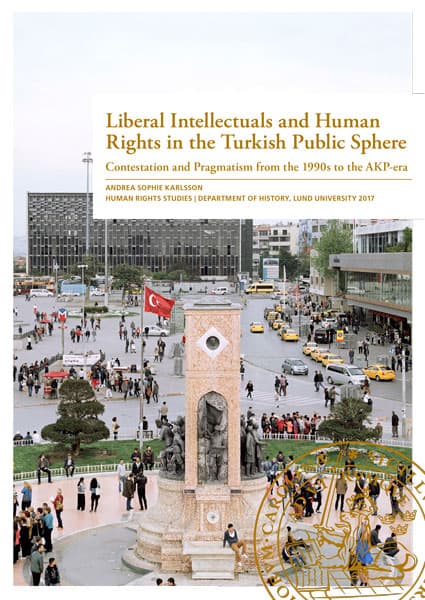
Artikeln har lagts till i varukorgen
Media-Tryck
Ny bok | Häftad
Läs mer om olika typer av bindningar här.
LEVERANS: Skickas inom 3-6 vardagar.
LEVERANS: Vi skickar din beställning med Postnords Varubrev eller DHL Servicepoint.
Du betalar alltid endast 49 kr i fraktavgift inom Sverige, oavsett vikt eller antal böcker vid beställning av antikvariska och nya böcker från oss! Läs mer
Det gick inte att ladda hämtningstillgänglighet
En julklapp? Beställ dina julklappsböcker i tid! Var vänlig och lägg märke till leveranstiden nedan. Och oavsett angiven leveranstid, på grund av osäkerhet i leveranser inför jul, rekommenderar vi att du lägger din beställning senast 10 december.
ENDAST 49 kr i fraktavgift inom Sverige, oavsett antal böcker!
Du betalar alltid endast 49 kr i fraktavgift inom Sverige, oavsett vikt eller antal böcker vid beställning av antikvariska och nya böcker från oss! Läs mer
ÅNGERRÄTT inom 14 dagar efter leverans.
RETUR & ÅNGERRÄTT: Du har alltid 14 dagars ångerrätt oavsett anledning, från den dagen du tar emot din leverans.
Skulle vår beskrivning av skicket på boken misstämma eller om vi på annat sätt gjort fel, står vi självfallet för returfrakten.
I KORTHET: A comprehensive analysis of the public interventions and actions of liberal intellectuals in Turkey, focusing on Kurdish and Islamic rights and the Armenian Genocide.
Liberal Intellectuals and Human Rights in the Turkish Public Sphere ger en djup insikt i turkisk politik och mänskliga rättigheter. Du får förståelse för hur liberala intellektuellas insatser formar det offentliga samtalet, särskilt kring kurdiska och armeniska frågor. Boken är ovärderlig för dig som vill förstå komplexiteten i Turkiets sociopolitiska landskap och hur historiska narrativ påverkar dagens diskussioner.
This dissertation examines the public interventions, rhetoric, and actions of liberal intellectuals in Turkey between the early 1990s and 2012 regarding the rights of Kurdish and Islamic actors and restrictions on discussing the Armenian Genocide of 1915. The analysis of diverse texts published by the interconnected intellectuals - newspaper columns, academic articles, policy papers, reports, and manifestos - and the institutions they used shows how an effective counter-public could take shape in relation to the state and to dominant publics. The interviews conducted with individual liberal intellectuals demonstrate the broader narratives of Turkey’s past and future that structured their historical orientation and their choice of action and platforms. The liberal intellectuals’ narrative and how they construed the central sociopolitical dynamics illuminate why they endorsed the Islamic governmental party AKP. Concerning the Kurdish conflict, the liberal intellectuals tried to create spaces beyond both Turkish and Kurdish nationalism while promoting the claim that the Kurdish issue should be solved within the framework of Turkish citizenship. Regarding the Armenian Genocide, the liberal intellectuals took significant steps to establish the genocide as a Turkish cultural trauma in order to rewrite the foundational narrative of Turkey. For the liberal intellectuals these themes were part of common broader objectives: to open up the space for free deliberation, to advance meanings not conforming to state ideology, and to enable new public formations. Although most of these actions did not occur with an explicit reference to human rights, the activities of the discursive community of liberal intellectuals are analyzed as a form of human rights claiming, based on the political theory of Claude Lefort who construes human rights as the generative principle of democracy and places political action and contestation of power at the center of the definition of human rights. Using concepts and perspectives from the disciplines of history, cultural sociology, and political theory, a way to study human rights claiming in concrete empirical contexts is developed that is not limited to the explicit language of human rights. The term ‘infrastructure of human rights claiming’ is proposed to denote the variety of institutions that enable rights and identity claims to be made. The critique of the Turkish political structure and its historical roots, the rendering visible of suppressed cultural identities and historic events, and the active participation of citizens in the discussion of all three themes were for the discursive community of liberal intellectuals ways to challenge the rights of the state and upend official state ideology and are thus human rights claims. Six central tensions are discussed that run through the liberal intellectuals’ engagement and how these can be generalized as intrinsic ambiguities in the politics of human rights claiming. Normalization was a central term in the liberals’ rhetoric and was also a process they contributed to. While the overcoming of nationalism was a primary objective they also sought to reformulate the nation. They tried to advance the rights of others but were simultaneously critical of identity politics. They wavered between basing their actions on the principle of rights and a pragmatic approach to advance their agenda. The fostering of pluralism was a principal concern but they were also wary of engaging with actors they perceived as non-democratic. The liberals saw themselves as mediators between different communities but also sought to advance their own political vision. I conclude that the public sphere can be construed as a central site as well as object of the politics of human rights. The dissertation is intended as a contribution to both Human Rights Studies and to interdisciplinary Turkish Studies.
Bindning: Häftad. 8:o (169x239 mm) År: Utg. 2017. Omfång: 186 s. ISBN: 9789188473424. Språk: Engelska
Författare: Karlsson, Andrea Sophie
Titel: Liberal Intellectuals and Human Rights in the Turkish Public Sphere
Förlag: Media-Tryck
Serie: Mänskliga Rättigheter
Genre: Samhälle, politik och debatt
Artikelnr: 39367211
Liberal Intellectuals and Human Rights in the Turkish Public Sphere av Andrea Sophie Karlsson hittar du under genren Statskunskap & politik inom Samhälls- & rättsvetenskap i kategorin Politik & samhällsvetenskap. Hitta fler liknande böcker:
Hitta fler liknande böcker med dessa ämnesord:
